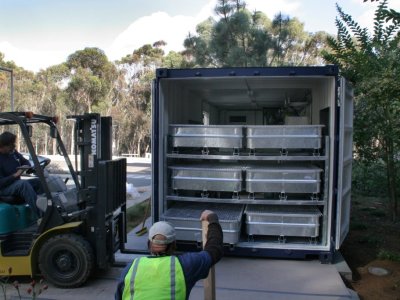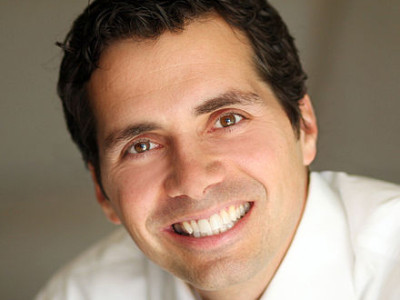Energy
Guest Blogger David Schraub: Vermont Environmentalists File FTC Challenge over “Double-Counting” RECs
David Schraub is the Darling Foundation Fellow in Public Law at the University of California Berkeley School of Law. Represented by Patrick A. Parenteau and Douglas A. Ruley of the Vermont Law School’s Environmental and Natural Resources Law Clinic, four Vermont residents have petitioned the FTC to investigate alleged misleading marketing practices by Green Mountain …
CONTINUE READING2014 Senate Races and the Environment: Georgia and North Carolina
Two GOP candidates: a cipher on environmental issues and a Romney clone.
Last week, I looked at the Republican Senate candidates in the neighboring states of Arkansas and Louisiana. This week, we turn to two other Southern neighbors, Georgia and North Carolina. (Before you rush to email me that they’re not neighbors because South Carolina is between them, take another look at the map — Georgia and …
Continue reading “2014 Senate Races and the Environment: Georgia and North Carolina”
CONTINUE READINGA Roadmap for State Comments on the Clean Power Plan
Considerations for State Regulators Tackling EPA’s §111(d) Proposed Rule
Yesterday, EPA announced its decision to extend the comment period on the Clean Power Plan—the agency’s proposed rule to regulate power plant greenhouse gas (GHG) emissions under Clean Air Act § 111(d)—until December 1, 2014. The comment period was originally scheduled to last 120 days, until October 16th. You can find a list of compiled …
Continue reading “A Roadmap for State Comments on the Clean Power Plan”
CONTINUE READINGUCLA / UC Berkeley Law Report On Harvesting Electric Vehicle Batteries For Grid Storage
Joint law school report will be discussed at a webinar on Friday at 10am
As I blogged about last week, California and the nation may have a golden opportunity to harvest used electric vehicle batteries for inexpensive energy storage. These repurposed batteries can be stacked for bulk storage to absorb surplus renewable energy for cloudy and dark windless times. They can save ratepayers money, clean the grid, and potentially …
CONTINUE READINGLos Angeles Heat Waves, Electricity Use and Climate Change
It is 102 degrees in Los Angeles as I write this. Not in the San Fernando Valley or in the communities east of Los Angeles whose temperatures are regularly several degrees higher but in downtown Los Angeles. We’re in record heat territory and way above historical averages. But temperatures aren’t the only records that are …
Continue reading “Los Angeles Heat Waves, Electricity Use and Climate Change”
CONTINUE READING2014 Senate Races and the Environment: Arkansas and Louisiana
Moderate Democratic Senators are at risk from GOP challengers.
Arkansas and Louisiana are neighboring states in which Republicans have good chances of picking up Senate seats. But the GOP candidates in the two states have somewhat different stances on the environment. Though, needless to say, neither of them will be getting awards from the Sierra Club anytime soon, one of them has some environmental positives, …
Continue reading “2014 Senate Races and the Environment: Arkansas and Louisiana”
CONTINUE READINGCleaning The Grid With “Second Life” Electric Vehicle Batteries
Register now for a webinar on the forthcoming UCLA/UC Berkeley Law report, next Friday from 10-11am
As California faces an increasing need for more energy storage to integrate variable renewables and provide other grid services, used electric vehicle batteries could be a critical – and inexpensive – part of the solution. Sales of electric vehicles in the United States are heading toward a quarter million, with 100,000 of those purchases in …
Continue reading “Cleaning The Grid With “Second Life” Electric Vehicle Batteries”
CONTINUE READINGGood News from the Middle East!
Israel Tells Dick Cheney: Get Your Paws Off Our Energy Policy
You’re checking your calendar: is it April Fool’s Day already? Alas, no. But there is some genuine good news our of the Middle East — at least for those who care about the Middle East’s natural environment. Terminating a several-year saga that has pitted claims of energy independence against environmental risk, the Jerusalem District Committee …
Continue reading “Good News from the Middle East!”
CONTINUE READINGWhy Does Mitch McConnell Hate the Environment?
McConnell’s environmental record is terrible — worse than Rand Paul or Jim Inhofe.
Mitch McConnell hates the environment. When I say McConnell hates the environment, I mean that he’s an environmental disaster. The environment would be in better hands if he were replaced as the Senate Republican leader by Ted Cruz or Rand Paul. Here’s a fun fact: Mitch McConnell’s environmental record is twice as bad as Ted …
Continue reading “Why Does Mitch McConnell Hate the Environment?”
CONTINUE READINGGreg Orman ♥ Cleantech
Was a Clean Energy Entrepreneur, Now Has a Serious Shot at the U.S. Senate
Yesterday, we got some surprising news from Kansas. The Democratic candidate withdrew and threw his support to Independent candidate Greg Orman, who might now be considered the front-runner against the incumbent Republican Senator. Orman’s website has a refreshing take on energy and environmental issues: In Washington today, one side says we must protect our environment …
Continue reading “Greg Orman ♥ Cleantech”
CONTINUE READING












